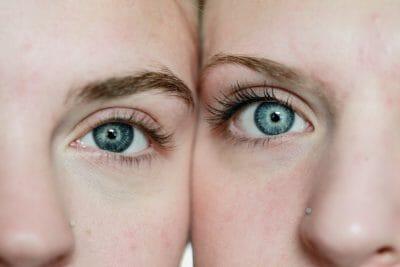Laser treatments are an innovative and popular approach for treating a variety of skin conditions, including acne scars, fine lines and wrinkles, hyperpigmentation, and age spots. This non-invasive treatment works by using intense light beams to target the affected areas of the skin, helping to rejuvenate and repair the skin at a cellular level. Although laser treatments are generally safe and effective, it’s important to understand the potential risks, different types of treatments available, and the benefits of undergoing laser treatment.
Types of Laser Treatments for Skin Conditions
There are many different types of laser treatments available for skin conditions, each designed to target specific skin concerns. For example, laser resurfacing is a popular treatment for acne scars and fine lines, while intense pulsed light (IPL) therapy is commonly used to treat hyperpigmentation and age spots. Fractional laser treatments, on the other hand, are effective for treating a range of skin issues, including acne scars, uneven skin texture, and fine lines.
Risks Associated with Laser Treatments
Although laser treatments are generally safe and well-tolerated, there are some risks associated with this type of therapy. Some patients may experience redness, swelling, or bruising after treatment, which typically resolves within a few days. In some cases, more serious side effects may occur, including scarring or changes in skin pigmentation. To reduce the risk of complications, it’s important to choose a reputable provider with experience in laser treatments and to carefully follow all pre- and post-treatment instructions provided by your healthcare provider.
Benefits of Laser Treatments for Skin Conditions
Despite the potential risks, there are many benefits to undergoing laser treatments for skin conditions. As the team from this laser clinic in Double Bay explains, perhaps the most significant benefit is the ability of laser treatments to improve the appearance of the skin, reducing the signs of aging, acne scars, and other skin concerns. Laser treatments can also be a more affordable and less invasive alternative to surgical procedures, with shorter recovery times and fewer complications. Additionally, laser treatments can be used to treat a wide range of skin concerns, making it a versatile treatment option for patients seeking to improve the overall appearance of their skin.
Choosing a Provider for Laser Treatments
When considering laser treatments for skin conditions, it’s important to choose a provider with experience in this type of therapy. Look for a reputable provider with a history of successful outcomes, and be sure to ask about their qualifications and experience with laser treatments. It’s also important to ask about the type of laser technology they use, as different lasers are designed to target specific skin concerns. Lastly, take the time to read online reviews and patient testimonials to get an idea of what to expect from the treatment experience.
Preparing for Laser Treatments
Before undergoing laser treatment, it’s important to prepare your skin to ensure the best possible outcomes. This may involve avoiding sun exposure for several weeks prior to treatment, as well as discontinuing the use of certain skincare products that could irritate the skin. Your healthcare provider will provide detailed pre-treatment instructions, which may include avoiding certain medications and supplements that could increase the risk of complications.
Aftercare Following Laser Treatments
After undergoing laser treatment, it’s important to follow all post-treatment instructions provided by your healthcare provider. This may include applying a topical ointment to the treated area, avoiding sun exposure for several weeks, and avoiding strenuous exercise or activity that could cause sweating. It’s also important to avoid picking or scratching at the treated area, as this could increase the risk of scarring or infection. With proper aftercare, the skin will typically heal within a few days to a week following treatment, revealing a healthier, more youthful-looking complexion.
Laser treatments for skin conditions are an excellent option for those looking to improve the appearance of their skin. These treatments are incredibly versatile and can address a variety of skin concerns, from fine lines and wrinkles to acne scars and hyperpigmentation. With proper care and precautions, laser treatments can also be a safe and effective alternative to more invasive procedures, such as surgical facelifts or chemical peels.
Despite the many benefits of laser treatments, it’s important to remember that there are potential risks associated with this type of therapy. These risks can include redness, swelling, and bruising, as well as more serious side effects like scarring and changes in skin pigmentation. To minimize these risks, it’s important to choose a reputable provider with experience in laser treatments and to follow all pre- and post-treatment instructions provided by your healthcare provider.
